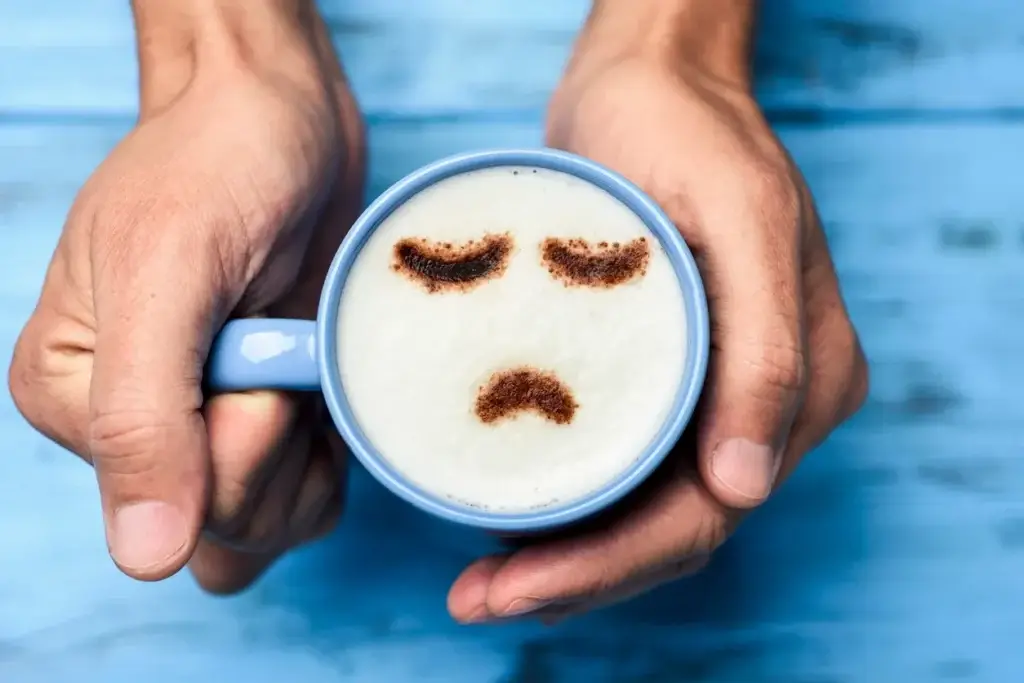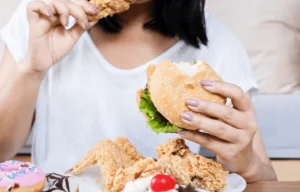When you’re struggling with depression, your mood and emotions are affected. But depression can also cause physical symptoms that are just as debilitating.
One of the most common physical symptoms of depression is a change in appetite. For some people, this means eating more to fulfill an emotional need. For others, it means a decrease in appetite that can make eating well a huge challenge.
In this blog post, we’ll review the link between nutrition and depression, and provide some tips for how to eat well when you’re depressed.
What’s the Link Between Nutrition and Depression?
Diet and depression are incredibly intertwined. Depression can lead to changes in diet, and changes in diet can potentially worsen or impact depression.
One of the hallmark symptoms of depression is a loss of interest in activities you used to enjoy. This, combined with a decrease in energy and difficulty making decisions, makes deciding what to eat, and then cooking it, extremely difficult. Plus, if food is no longer pleasurable for you, you might miss meals or snacks without noticing.
Some people with depression may also notice gastrointestinal side effects such as nausea or diarrhea. These symptoms can also contribute to poor appetite.
Diet and nutrition are so interrelated that it has inspired a new field of medicine called nutritional psychiatry. This field of study aims to uncover mechanisms by which diet can have an impact on the development and treatment of mental illness.
The SMILES Trial
The SMILES Trial is a study that looked at whether changes in a person’s diet were an effective treatment for moderate to severe depression.
During the study, participants in the diet group received personalized, individual nutrition counselling sessions with a registered dietitian. The participants in the control group received a social support visit of the same length and schedule.
The study found that there was a significant improvement in symptoms of depression in the group receiving nutrition counselling from a dietitian. The study also found that people who received nutritional counselling increased their intake of whole grains, fruit, dairy, olive oil, pulses, and fish. In contrast, they did not see a difference in dietary intake in the control group (i.e. those not receiving nutritional counselling).
While this study was small and had its limitations, it showed that increasing intake of health-promoting foods may be an effective support for depression. While we still don’t fully understand why and how changes in diet affect depression symptoms, this study shows that diet may be an important factor in the treatment of depression for some individuals who are struggling.
Meals for When You’re Depressed
When you’re depressed, it can be hard to get out of bed, let alone prepare a meal. Luckily, there are many quick and easy meals that you can pull together in a pinch when you’re feeling down.
Frozen or canned fish with pasta and bottled marinara sauce
Fatty fish like salmon, tuna, and sardines are some of the best foods for our overall health. This is because they contain high amounts of omega-3’s, which are beneficial for brain and heart health. Omega-3’s may help with depression, however, more research is needed to determine how omega-3’s improve mental health outcomes.
Frozen fish can be easily baked in the oven with a little olive oil, salt, and pepper. If cooking sounds like too much work, canned fish works just as well. For a quick and easy meal, mix canned fish with pasta, olive oil, and marinara sauce.
Grilled cheese sandwich
Is there anything better than the comfort of a grilled cheese sandwich? It’s quick to make, and the cheese provides a source of protein and calcium that will help keep you satisfied. Pair with a handful of baby carrots or cherry tomatoes for an added boost of fibre and antioxidants.
Peanut butter sandwich and a piece of fruit
Sometimes, cooking (even boiling water to cook pasta or turning on the stove to make grilled cheese) seems out of reach. Peanut butter sandwiches are a great option for when cooking isn’t an option.
Peanut butter is a source of protein and healthy fats. Pair with whole wheat bread and a piece of fruit for a quick, balanced meal.
Fruit smoothie
Not in the mood for savoury foods? Smoothies are a great option. Combine your choice of milk, yogurt, and frozen fruit for a quick and easy meal. You can also add a scoop of protein powder or a spoonful of nut butter for some extra protein. Balance out the smoothie by adding a ¼ cup of dry oats and blend it up!
Tips for Eating When You’re Depressed
Having ideas for what to eat when you’re depressed can be helpful, but how can you ensure that you have those foods on hand and actually eat throughout the day when you’re depressed?
Grocery Delivery Services
Don’t have any groceries at home? Not to worry! Grocery delivery services are available for most grocery stores, and the small delivery fee is well worth it if it means you don’t have to leave your house but can still get nutritious foods delivered right to your door.
Set a Meal Schedule and Stick to it
Many people find that when they’re depressed, they lose interest in eating. If you’re not careful, this can lead to missed meals (which can make depression worse).
To avoid missing meals, come up with a meal schedule and stick to it. Even if you’re not hungry, it’s important to provide your body with enough nutrients throughout the day. If you’re struggling to remember to eat, try setting an alarm at regular intervals and eating every time it goes off.
Keep Emergency Freezer Meals
One of the best things you can do when you’re feeling better is prepare extra meals that you can keep on hand for when the depression hits. Some of the best freezer meals include soups, stews, and chili.
Don’t feel like cooking? There’s nothing wrong with keeping a stock of store-bought, frozen dinners to tide you over when you’re feeling down.
Order Nutritious Takeout
Sometimes, no matter how hard you try, cooking just isn’t in the cards. And that’s ok! With services like Door Dash and Skip the Dishes, it’s never been easier to get ready-to-eat food delivered to your door.
If you can, try to order food that contains a source of protein, vegetables, and whole grains (for example, a salad that includes a grain like quinoa or a burrito bowl). These will help keep you satisfied and provide a boost of nutrients.
Final Thoughts
While it’s still too early to say whether changes in diet can be an effective treatment for depression in some individuals, eating nourishing meals is an important act of self-care that you can engage in when you’re feeling depressed. Studies do show an association between whole grains, fruits, vegetables, and healthy fats and mood, so it’s worth trying to include these foods in your diet when you’re not feeling well.
Struggling with mood and not sure how to eat? Journey to Health is a private practice that supports people with mental health concerns through dietitian and therapist services. Contact us to book your free call with one of our clinicians to determine if our services are right for you!
Copyright © 2022 Journey to Health – All Rights Reserved.






